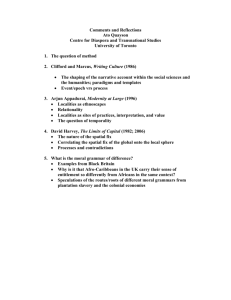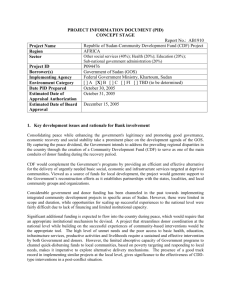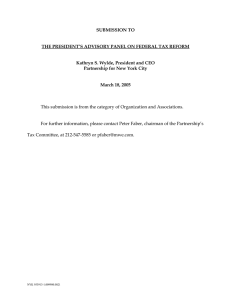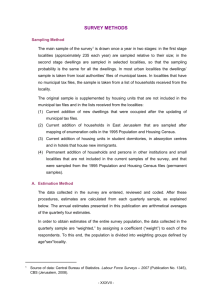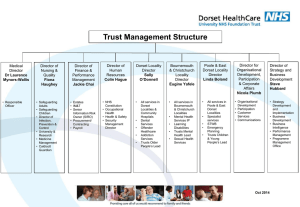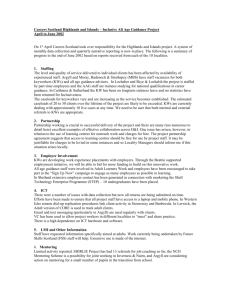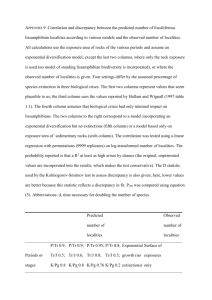presentation
advertisement
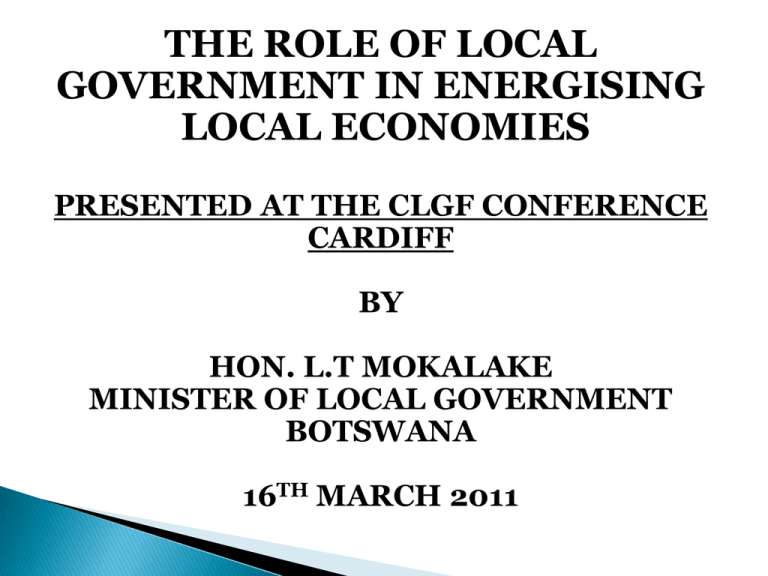
THE ROLE OF LOCAL GOVERNMENT IN ENERGISING LOCAL ECONOMIES PRESENTED AT THE CLGF CONFERENCE CARDIFF BY HON. L.T MOKALAKE MINISTER OF LOCAL GOVERNMENT BOTSWANA 16TH MARCH 2011 1.1 The role of local government in relation to the rest of government: closeness to the people 2nd Sphere of government Bridgeway between the government and the people rest of 1.2 One of the major roles is to revitalize local productivity levels: Agriculture Manufacturing Services Sector Local procurement; Capitalising on usage of available resources; Creating a conducive environment for private sector participation; Lobbying for a larger share of the national cake; Expanding other sources of revenue; Creating a reliable market for products and services; Development of relevant legislation and Skills 3.1 Strategies put in place: Vision 2016 (1997) – “Prosperity for All”; Revised National Policy for Rural Development (2002); The National Strategy for Poverty Reduction (2003) ; Economic Diversification Drive (2010); 3.2 It was through these initiatives that poverty levels were reduced by 10% from 47% in 1997 to 37% in 2007. 3.3 Private Sector Participation Local Level (2004); Consultative Committees High Level Consultative Forum (); Private Public Partnerships; Local Procurement services; of goods and The existence of Local Authority Procurement and Asset Disposal Act (2008) for transparency 3.4 Community Mobilisation Use of extension machinery to mobilise the community Public participation in both National and local development plans Community resilience programme which capacitates communities to take ownership of their economic development. Identification of investment opportunities in various localities 3.5 Organisational Effectiveness Process reengineering - cutting down on bureaucratic processes Timely provision of services, that is, power, water and roads Development and auditing of Service Standards Development of a Strategy to guide implementation Shortage of skilled manpower Narrow revenue base. Limited infrastructural development due to limited funding/scarce resources. In conclusion, Local governments are critical in promotion of local economic development within their localities. 5.1 It is the Local Government that contribute immensely to the achievement of the Millennium Development Goals. 5.2 Local governments must be recognised as a true second sphere of government, worthy of financially, human and material support. 5.3 Essentially, there is need to capacitate local governments to fully discharge their mandate and remain accountable to their constituents. 5.4 Local governments must earn their autonomy from Central government by securing their own revenue sources 5.5 All these require a conducive framework within which local government can operate 5.6 To this end, Botswana is in the process of developing legislative frameworks to leverage the operations of local governments; these are: Local Economic Development (LED) policy to ensure achievement of sustainable local economies. Decentralisation Policy in collaboration with the local government association, to provide the basis for planning, accountability and responsiveness to local development. 5.7 It is our hope that these will promote participation of our citizens to attain our vision on “Prosperity for All” by year 2016. 5.8 All in all, local governments must provide the first stage of confidence building for the local economies by providing marketing strategies for their localities. 5.9 It is the responsibility of local governments to make their localities pleasant places to work and live in. I THANK YOU ALL!!!!

